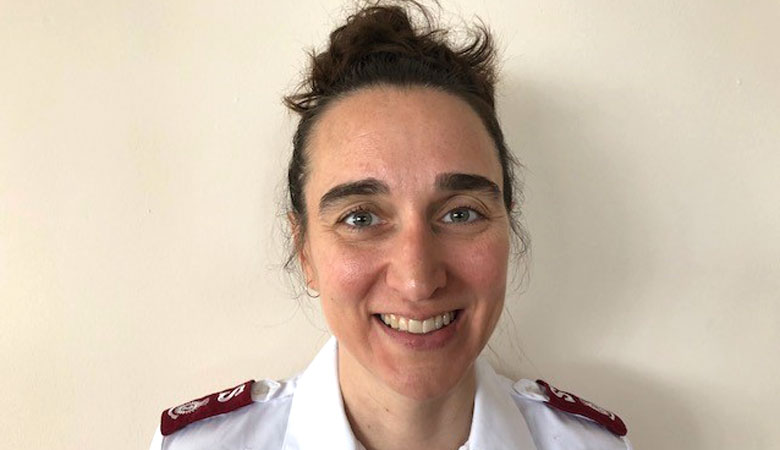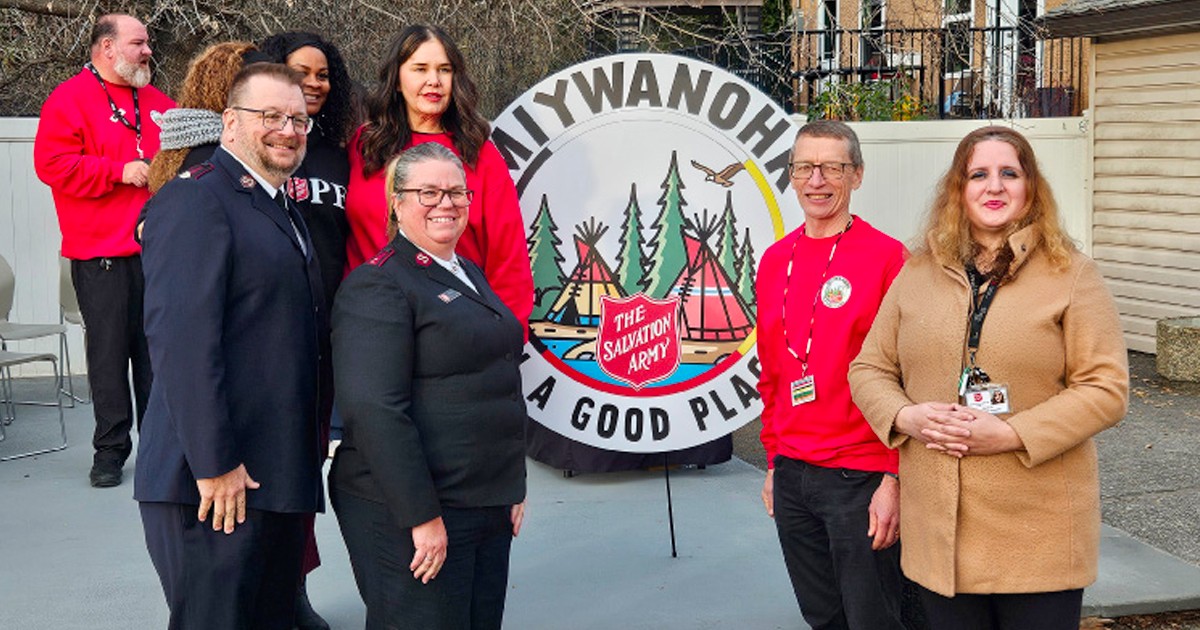(Above) “Canada is considered a transit, destination and source country for human trafficking,” says Major Rachele Lamont
Major Rachele Lamont has been newly appointed as the territorial co-ordinator for anti-human trafficking for the Canada and Bermuda Territory. Associate editor Leigha Vegh spoke with her to discuss her new appointment.
What led to your new appointment as the territorial co-ordinator for anti-human trafficking and national contact person for the Canada and Bermuda Territory?
I’ve just transitioned out of Greece where my husband and I had been for the last four years. I was the co-ordinator for anti-human trafficking for the whole region. When I started, I had inherited the emergency disaster response to the refugee crisis and the anti-human trafficking response that was ongoing for about eight months already. So, I developed and ran a community services refugee day centre, which offered case management, advocacy and different programs to help families integrate.
One of our top concerns was sex and labour trafficking and exploitation of high-risk persons such as refugees, migrants and undocumented persons who were coming into the country.
How did your experience in Greece prepare you for the work you’ll be doing in Canada and Bermuda?
What I did in Greece is similar to what I’m doing now. It’s part of a global response from International Headquarters. Every territory, command and region need a co-ordinator for modern slavery and human trafficking.
We also require a national contact person so that we can network with each other and work proactively in situations of human trafficking, exploitation and slavery. In a sense, I had already been doing this in Greece, so now I get to continue my efforts, but in another territory.
We’ve had a team going now for about a year, so I get to use my experience from Greece to help the team here while we’re still in the grassroots.
Is there human trafficking going on within the territory that people should be aware of?
Yes, absolutely. There is sex trafficking, labour trafficking and commercial sexual exploitation of children going on.
For example, in Ontario and British Columbia, there are seasonal agricultural programs that have undertones of exploitation. There are also temporary migrant worker and caregiver programs where people can be taken advantage of.
Canada is considered a transit, destination and source country for human trafficking, so people from Europe, Asia, the Caribbean and Mexico are either coming to our country or passing through our country to the United States and further south.
What do you hope to achieve?
A lot of things. The Salvation Army has a deep history of fighting social injustices, and one of them is human trafficking. My hope is that we go back to those roots and become passionate again about this social injustice. It’s a part of who we are in Christ because he has such a heart for justice as well.
Another hope I have is that we learn about human trafficking as it pertains to every level of our structure, such as women’s ministry, social services, children and youth ministry, and refugee work to name a few. Not only do we need to become aware of it, but then we must stand and fight it.
As it becomes a natural part of our structure, we will start seeing the fruit of our prevention, protection and partnership initiatives. We will see people being freed and healed; we will see people realizing who they have been created to be in Christ.
I would love to see more shelters specifically for human trafficking and after-care programs happening throughout our territory, so that it becomes our norm.
What is it like starting a new appointment during the COVID-19 pandemic?
Coming from Greece, where we were in the midst of an economic crisis, a homelessness crisis and a food crisis, I found the transition to Canada easier in the sense that in Greece we inherited one crisis after another, so transitioning to COVID-19 in Canada seems natural to me.
I’m stepping into a great team that is already in place. I appreciate all their efforts before I even got here—all the sweat and tears, all the hearts that I now get to join with. The team has been here faithfully, so I’m just going to continue building on that.
Major Rachele Lamont spent four years as the co-ordinator for anti-human trafficking in Greece. Now, she’s bringing her expertise to the Canada and Bermuda Territory, hoping to incorporate a response to human trafficking at every level of The Salvation Army.










Comment
On Wednesday, October 14, 2020, Sharon Tillsley said:
On Sunday, June 21, 2020, Sandra Haggarty said:
On Friday, June 12, 2020, Sonja Goldinak said:
Leave a Comment